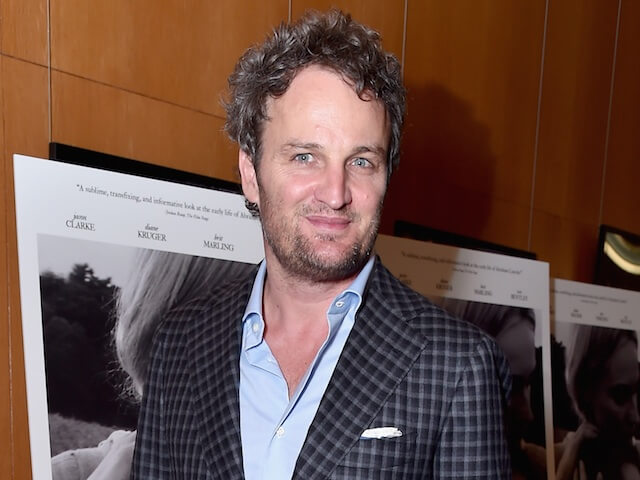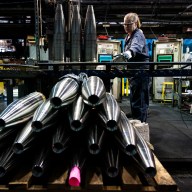Many years ago Jason Clarke auditioned for — but did not get — a role in Terrence Malick’s “The Thin Red Line.” “Broke my heart that I didn’t it,” the actor recalls. Now he’s in two of them. He has a role in “Knight of Cups,” one of the once-MIA director’s three forthcoming films. But actors never know what Malick will do with them, or if he’ll even ultimately use them. At least Clarke is definitely in “The Better Angels,” a Malick-style, Malick-produced film made by A.J. Edwards, a frequent editor and collaborator on the filmmaker’s films. The film is an unusual biopic about Abraham Lincoln, focusing entirely on a slither of his childhood in backwoods Illinois (actually a park in upstate New York). Clarke plays Tom Lincoln, the rugged, remote father of the 16th president, seen enduring the death of his wife Nancy (Brit Marling) and the arrival of young Abe’s stepmom, Sarah (Diane Kruger). It’s not really a Malick film; he was never on set, and though Clarke describes the script as a “blueprint,” it was more scripted than most recent Malick films — though still nowhere near the safety net to which actors like Clarke are used. “As an actor it allows you to let go of some of the things you have as a signpost or walking sticks to help you along,” Clarke says. “You let it go and you find a great amount of freedom and a lack of pressure, which is very refreshing. There is no right or wrong. It’s just about capturing the moment of what’s between people.” If the acting style was unusual for Clarke — who’s now doing plenty of giant films, such as this year’s “Dawn of the Planet of the Apes” and “Terminator: Genisys,” in which he’ll take on John Connor — the actual business of making a film in the midst of nature was not. Clarke grew up on a farm in Australia, and is an avid outdoorsman. This was still extreme. “We really built the cabin out there. We wore clothes that were made from cloth that was right from the time period,” he says of the set. “It was a very harsh shoot, particularly as it got cold and wet. But it was part of getting across the audience where this little boy came from and what he went through, and how he got the bones that he had.” “The Better Angels” didn’t have a huge budget. “All the money is onscreen,” Clarke says. But a bigger budget, he thinks, wouldn’t have helped. “They probably would have tacked on a lot of stuff that wasn’t true. There was a love story, there was a young girl in the woods…” Though the film is about the boy called only “Abe,” Clarke’s Tom gets more screentime, portrayed as both harsh and quietly loving. “It was a different way of being a father at that point,” Clarke explains. “The kid’s got to learn how to farm, build, cook, find heat and shelter. If the father dies, which did quite young back then, it’s his job to step up and support the family. He didn’t have time to play.” Tom’s character has been disputed over the years, some historians attacking him as a lout, others as supportive, in his way. Wherever the truth lies, the brutality of the times, with their ever-present shadow of death, created relationships that can seem alien to modern audiences. “Parents didn’t show a lot of love in those days in the way we think of it now,” he says. The same goes for Tom and Abe. “It wasn’t that type of relationship. It’s [Tom’s] job to tell him to do this, that his job is to learn, he’s about to be a man. He needs to know what he’s doing, otherwise he might die out there.” As for dealing with Malick himself, like most of the many actors who scramble to work with him, Clarke is OK with not knowing what “Knight of Cups” will be or if he’s even in the final cut. “I really truly have no idea what it’s going to be and how it’s going to come out in the end. Terry’s got a particular style, particular motives. It’s a truly amazing little carnival to work in. He’s got a lot of method to his madness,” says Clarke. About the film itself, all he can says is, “I look forward to seeing it.” Follow Matt Prigge on Twitter@mattprigge
Interview: Jason Clarke talks playing Abraham Lincoln’s tough dad in ‘The Better Angels’

Getty Images


















